| |  | | | October 7, Two Years Later: How the War Reshaped Israel's Future By Winfield Myers ● Oct 07, 2025 Smart Brevity® count: 10 mins...2688 words Today marks the second anniversary of Hamas's heinous attack on Israel. This special issue features nine articles—seven written especially for today. Jonathan Spyer offers a retrospective, beginning with the policy failures that unwittingly set the stage for the surprise attack and moving to an in-depth assessment of the war's progress and results, both military and diplomatic. Gregg Roman argues that, against elite opinion in some circles, Israel remains very much an asset to the U.S. and the West. Alex Selsky examines how the attack will shape Israeli society "for decades to come." We follow with articles by Potkin Azarmehr, A.J. Caschetta, and Elizabeth Samson and close with, first, Gregg Roman's article "Silent Cries Amidst Invasion," written on the day of the attack. Hamas, he concluded, "must be torn from Gaza root and stem." We end with Jonathan Spyer's one-year assessment of the war from October 2024. | | What Israel Has Learned from Two Years of War 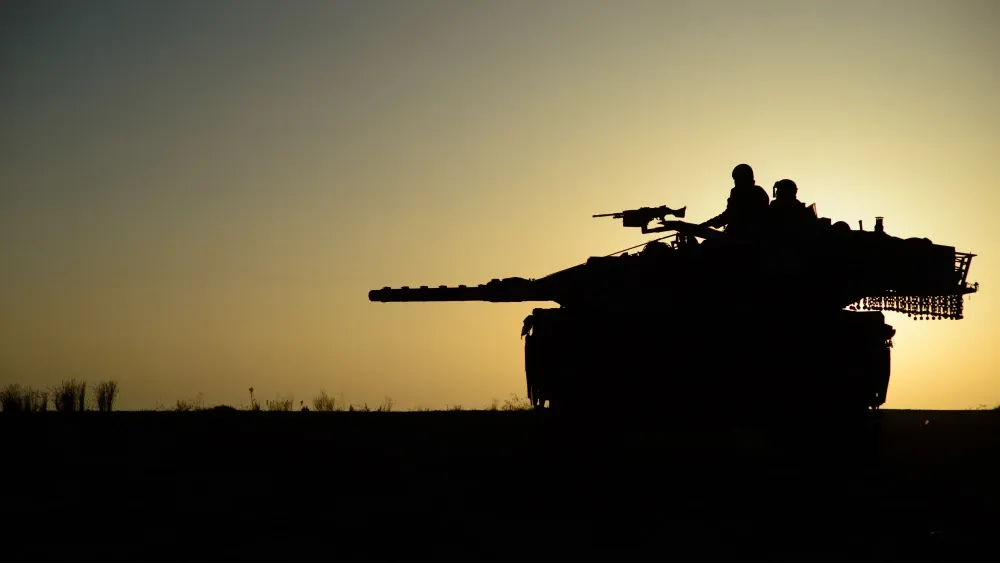 By: Jonathan Spyer Today marks two years since the onset of Israel's war in Gaza, the longest conflict since its founding. While not the bloodiest, with 1,980 Israeli lives lost, it exposes and the shallow depth of its alliances. Why it matters: The conflict erupted after Hamas's October 7, 2023, invasion, following a period of Israeli complacency and misjudgment about Hamas's intentions. -
The core error was the assumption of pragmatism on the other side. That is, Israeli planners in the political, military and intelligence leaderships alike jointly assumed that the Hamas rulers of Gaza had no interest in conflict. -
The same lazy assumption that the enemy was thinking in the same way as 'us' led Israel to assume that Egypt would not attack in October 1973. Tactical prowess: Israel's decimation of Hamas in Gaza has been conducted in a kind of slow motion, because of the parallel need to negotiate for the release of hostages taken on October 7. But two years on, Hamas's capacities have been pulverized. -
Over 200 hostages have been returned. The IDF controls 75 per cent of Gaza and is in the process of reducing Hamas's last strongholds in Gaza City. -
Regionally, Israel's strategic operations have severely damaged Iran's nuclear project and weakened Hezbollah, reflecting tactical success. Western isolation: Israel has for the last two years been fighting enemies of the West, ideologically and sometimes also structurally linked to the very same forces that threaten the security and well-being of western societies. -
Yet large parts of western public opinion, and even of western political leadership, reacted to Israel's response to the October 7 attacks with opprobrium, fury and the desire to isolate and punish the Jewish state. Future outlook: This solitude, alongside the tactical lessons to be pondered, is perhaps the most notable revelation of the last two years of war. Its meaning, and its implications, will be studied long after the guns in Gaza fall silent, whether that takes place imminently, or in the months ahead. To read the full article, click here. | | Two Years After the October 7 Massacre, Israel Remains a Strategic Asset, Not a Liability 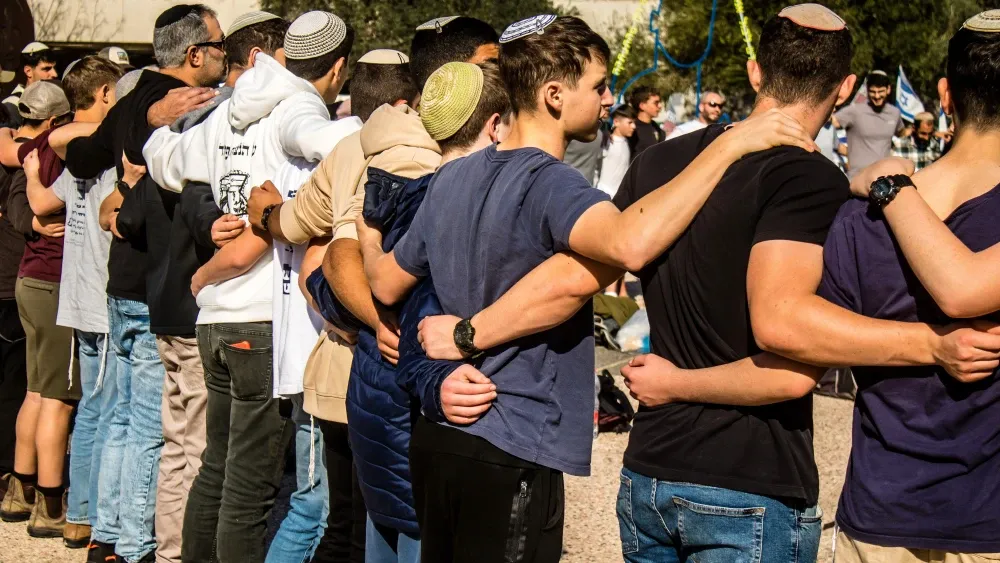 By: Gregg Roman Two years since October 7, 2023, the fires consumed the illusions of a generation, marking not just an intelligence failure but a collapse of a Western foreign policy that favored process over victory. This anniversary sharpens the debate: Is Israel a strategic asset or liability for the U.S.? Why it matters: The conflict revealed the flaws of a policy that relied on "managed decline," allowing Iran's ideological threat to grow unchecked. Strategic clarity: A new regional order, anchored by Israeli strength, is the emerging reality of a new Middle East. Having achieved a decisive military victory over Hamas and having directly confronted the head of the octopus in Iran, has become the region's security provider. -
This is not a threat to American interests; it is the fulfillment of them. -
An Israel that acts as a regional hegemon, projecting power to enforce stability, is the most effective and cost-efficient bulwark against the forces that threaten American interests. Future implications: As Israel becomes a regional hegemon, it aligns with moderate Arab states, countering Iranian aggression and global rivals like China. Victory over conflict: The argument voiced on the left and right that Israel is a strategic liability is the last, desperate gasp of a failed establishment to deflect blame for the consequences of their own doctrines. -
They warn of the costs of victory, but they ignore the greater costs of the perpetual, managed conflict they created. -
This anniversary should be a moment of resolve, a time to embrace clarity. The choice is not between war and negotiation; it is a choice between victory and perpetual violence. To read the full article, click here. | | How the October 7, 2003, Attack Reshaped Israeli Society 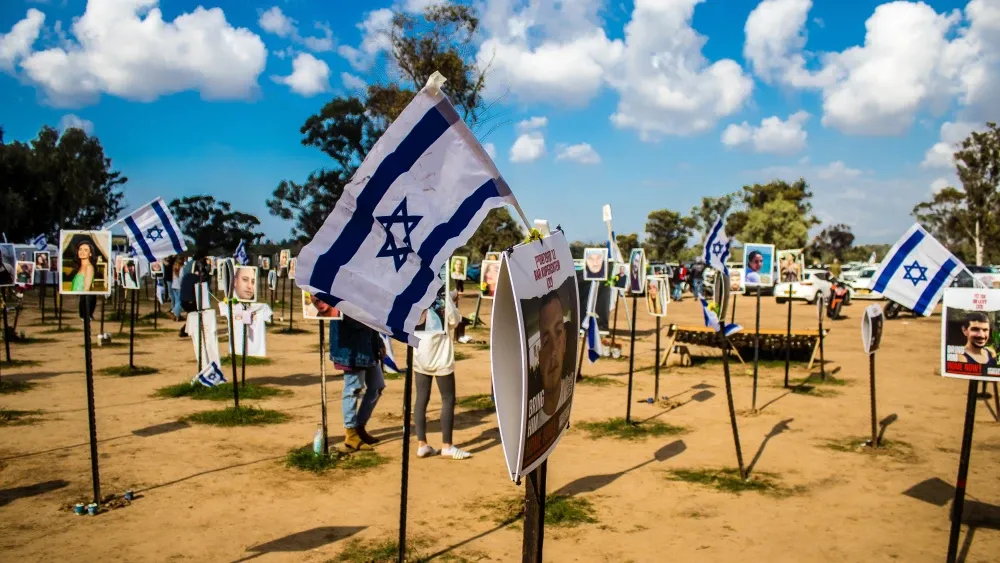 By: Alex Selsky October 7, 2023, changed how Israelis think about security, politics, society, and the economy. It forced the country to see itself and its future in a new light. The trauma of that day still shapes every debate and decision. Why it matters: Security assumptions collapsed. The fence around Gaza failed. Technology failed. Intelligence failed. The idea that Israel could "manage" the conflict with limited rounds of fighting ended. Israelis understood that survival requires victory, not management. -
Israelis now view military readiness as essential, rejecting concessions in favor of a more defensive stance. -
Public sentiment has shifted firmly toward the right, reflecting a national consensus on security priorities. Daily transformation: Civilians face direct threats, as their homes and cities have become battlefronts. Everyday routines now include constant alerts and mobilizations, with safe rooms becoming a necessary part of life. Generational shaping: Children are growing up amid conflict, which is shaping their worldview and expectations. Skepticism towards peace initiatives is taking root, but shared sacrifices are forging a strong sense of unity among them. Political shift: Trust in leadership has plummeted, leading to a focus on leaders who can deliver security. The demand for accountability has risen, steering political discourse towards practical security solutions. Looking ahead: The legacy of the October 7 massacre will endure. It will remain as the day Israel rewrote its doctrine and redefined its future. The next generation will inherit both scars and strength. They will demand stronger institutions, reliable leadership, and a vision of security based on power. October 7, 2023, has shaped Israeli society for decades to come. To read the full article, click here. | | The Western Left Is on the Wrong Side of History  By: Potkin Azarmehr In September 2025, I traveled to Israel with journalists, visiting Nir Oz kibbutz near Gaza. Hamas had killed or abducted a quarter of its residents, many of whom were lifelong left-wing activists, highlighting a tragic irony. Why it matters: Despite their pro-Palestinian stance, the Western left has largely ignored their plight, instead supporting the reactionary forces responsible for the massacre. Ideological dissonance: The Western left's support for extremist Islamists over victims of terrorism reveals a troubling double standard. Historical lessons: Such alliances often place the left on the wrong side of history, serving reactionary forces rather than confronting them. Reflections on values: Many residents of kibbutzim like Nir Oz lived by the very values they preached—collective ownership, equality, fraternity, peace, co-existence. To read the full article, click here. | | October 7 stands as a day of infamy 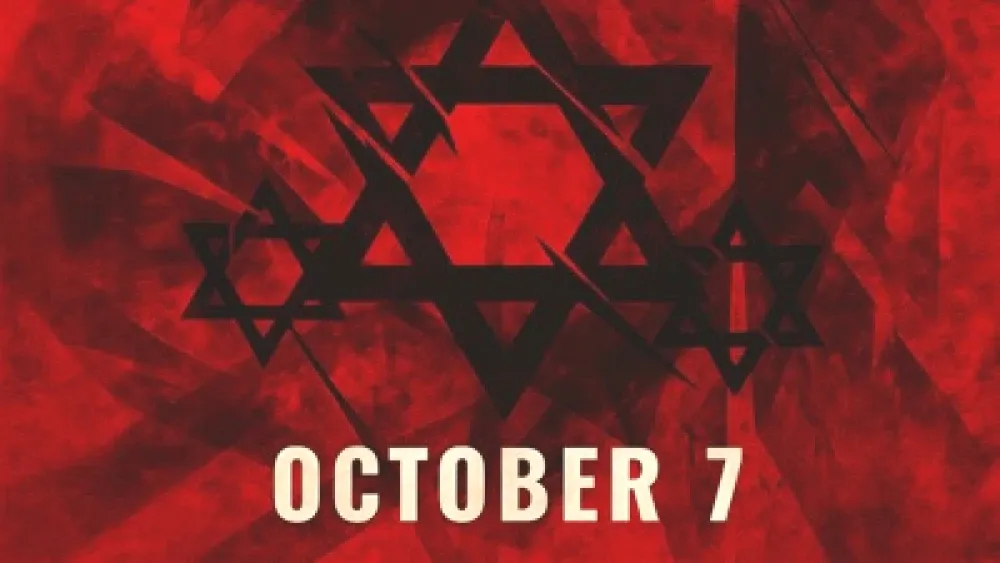 By: A.J. Caschetta Writers struggle to encapsulate the horror of October 7, 2023, in Israel, with terms like "attack" and "massacre" falling short. The day's events demand a unique identifier, akin to Pearl Harbor and September 11. Why it matters: October 7's brutality differentiates it from historical precedents. Unlike Pearl Harbor's military strike or the impersonal violence of September 11, this day involved personal, heinous acts designed for maximum cruelty. Historical parallels: While Pearl Harbor and 9/11 share shock and horror with October 7, the latter's barbarism is unprecedented. -
October 7's violence included infanticide, beheadings, and strategic sexual violence, setting it apart in modern history. Naming significance: Just as "Pearl Harbor" and "9/11" became synonymous with their respective events, "October 7" should independently signify the day's atrocities. To read the full article, click here. | | Will Trump's New Gaza Plan Lead to a Palestinian State?  By: Elizabeth Samson President Trump's twenty-one-point plan proposes a ceasefire and offers Palestinians a path to statehood, contingent on meeting specific conditions. The plan demands Gaza's demilitarization, hostage releases, and significant Palestinian reforms. Why it matters: The plan emphasizes lessons from statehood successes in East Timor and Kosovo, which adhered to legal principles and governance reforms. -
Both East Timor and Kosovo achieved statehood because they met the requirements outlined in the Montevideo Convention on the Rights and Duties of States (1933), which sets out four criteria for statehood: a permanent population; defined territory; functioning government; and the capacity to enter into relations with other states. Palestinian shortcomings: Palestinians lack a unified government and effective security, with the Palestinian Authority and Hamas dividing the territory. -
They have failed to demonstrate that they are peace-loving and will not pose a threat to neighboring countries, most especially Israel, but also Egypt and Jordan. -
Until the Palestinians and the international community address these problems, Palestinian statehood will remain a political illusion, not a legal reality. Path to recognition: Palestinians must move beyond victimhood rhetoric and meet international standards to gain U.N. recognition. -
Tony Blair's proposed role in leading Gaza's governance underscores the need for adherence to rule of law and peaceful coexistence, areas where Palestinians currently fall short. -
Statehood is not compensation for grievance; it comes by meeting legal and institutional benchmarks. If Palestinians want a state, they must build one—with institutions, disarmament, and the rule of law. -
If they want international recognition by the United States—the most important vote they need at the United Nations—then they must meet international standards; there are no short-cuts. To read the full article, click here. | | 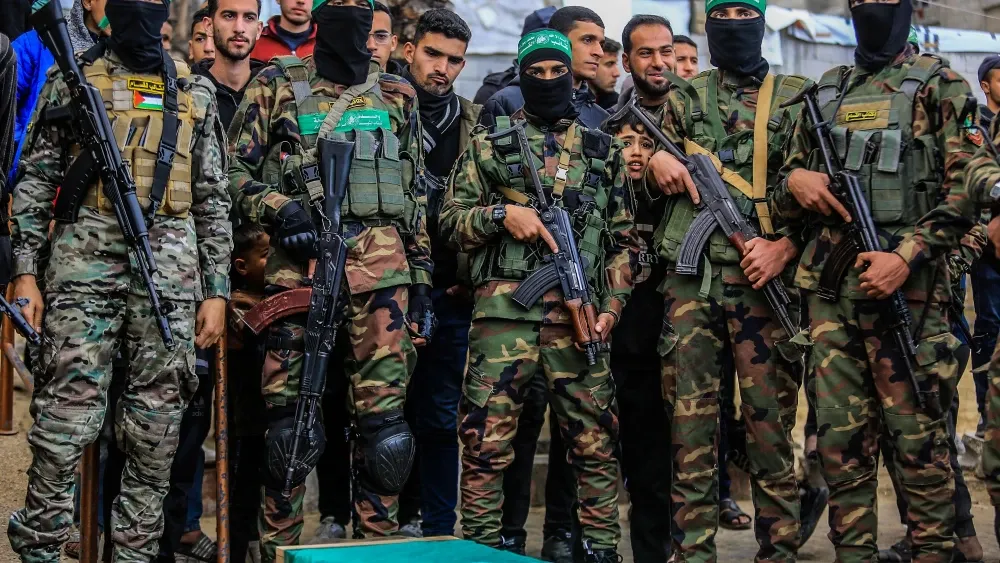 By: Rafael Bardaji For the first time in two years, global attention pivots from Israel to Hamas, following President Trump's new peace plan for Gaza. This plan redirects international pressure onto Hamas, challenging them to accept the conditions for peace. Why it matters: The Arab world's support, along with Qatar's shift away from backing Hamas, places the group in a critical position. European stance: Despite Hamas' dwindling support, some European countries, influenced by anti-Israel sentiment, continue backing the group. This includes Spain's government, which pressures Israel diplomatically. Hamas' dilemma: Will Hamas choose to preserve its forces as Israeli troops close in on Gaza City, or gamble on prolonging the conflict? Path to peace: Peace in Gaza would not be the end of the road to stability, prosperity, and security in the region, but its first step. -
Hamas and other terrorist groups everywhere—not just in Gaza—must be eliminated, especially in the West Bank, which could become their next battleground. -
Only once that threat is removed will it be possible to pursue de‑radicalization and institutional reform so that, if a Palestinian state ever comes into being, it will be a normal neighbor rather than a new threat to Israel's—and the region's—peace and security. To read the full article, click here. | | Silent Cries Amidst Invasion: Israel Must Eliminate Hamas  By: Gregg Roman [Ed. note: The article summarized below appeared originally on October 7, 2023.] In the haunting silence that follows yet another terrifying burst of gunfire, amidst the charred remains of a once peaceful kibbutz near the Gaza border, lies an emblem of innocence—a baby, found alone at Kibbutz Kfar Aza, whose parents may have been kidnapped by Hamas. Why it matters: This orchestrated massacre, driven by genocidal intent, underscores the urgent need for Israel to act decisively. Strategic necessity: Amidst the chaos, Israel must abandon passive strategies and dismantle Hamas's threat once and for all. Global resolve: As President Biden prepares to speak with Prime Minister Netanyahu, the world watches in stunned silence. Existential fight: Israel's battle is not one of choice, but of survival, driven by the necessity to protect its citizens and secure a future free from terror's shadow. -
For all these reasons and more, Israel's case for military action against Hamas in Gaza is clear. The organization must be torn from Gaza root and stem. -
While war should always be a last resort, Israel now faces a situation in which decisive action is required to safeguard its future and pave the way for a more stable, peaceful Middle East. To read the full article, click here. | | Notes from a Long War: Israel One Year on from the October 7 Massacre 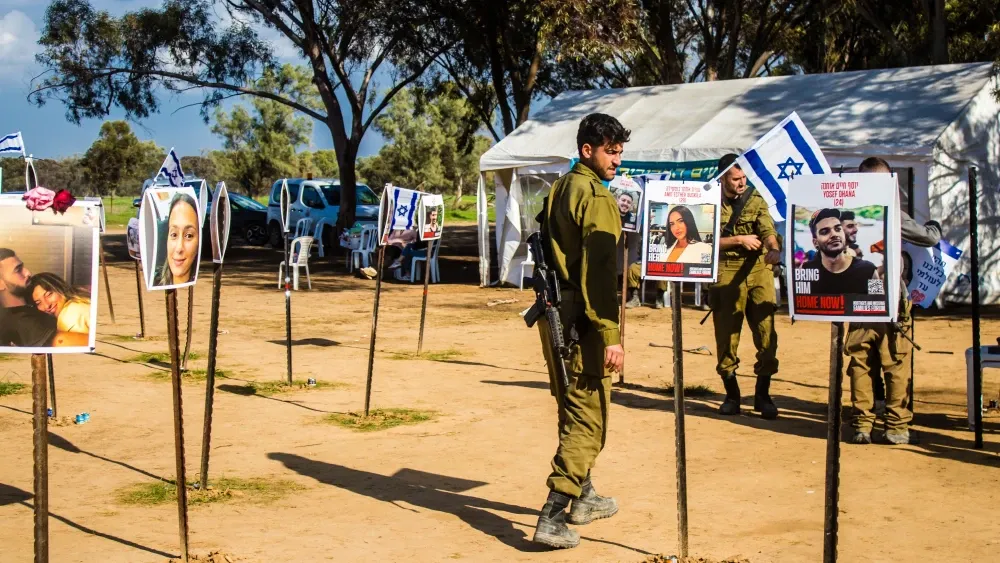 By: Jonathan Spyer [Ed. note: The article summarized below appeared originally on October 1, 2024.] "We have sat, an easy generation, in houses held to be indestructible," wrote Bertolt Brecht, a sentiment echoing in Israel before October 7, 2023. The belief in indestructible defenses was shattered, revealing complacency towards threats like those emanating from Gaza. Why it matters: October 7 marked the return of history for Israel, unveiling the fragility of perceived security and igniting a renewed sense of urgency. -
The nation, jolted by the surprise attack, mobilized rapidly, reminiscent of past conflicts like the Yom Kippur War. Shock to mobilization: Stories of courage, such as Ido Rosenthal's, highlight the nation's capacity for swift adaptation and resilience. A long conflict: The war has expanded beyond Gaza, engaging Israel on multiple fronts across the Middle East. -
This war was launched to test a thesis, according to which the Israeli society that preceded the attacks, the satiated, sometimes complacent collectivity that indeed held its house to be indestructible, would prove unable to mobilize to defend its home and would thus collapse. -
This thesis, as demonstrated a little by the preceding accounts, has been disproven—at a very high cost. Choosing life: Since it is nearly the Jewish New Year, allow me to phrase that in the appropriate way: the nation had set before it life and death, and blessing and curse. And it chose life. To read the full article, click here. | | Thank you for reading this special October 7 edition of the Dispatch. If you it useful, please share it with others and be sure to let us know your thoughts on our coverage via the comments feature. Sincerely, Winfield Myers
Managing Editor, Middle East Forum
Director, Campus Watch | | | | Was this edition useful?  

Your email will be recorded and shared with the sender |        MEF, an activist think tank, deals with the Middle East, Islamism, U.S. foreign policy, and related topics, urging bold measures to protect Americans and their allies. Pursuing its goals via intellectual and operational means, the Forum recurrently has policy ideas adopted by the U.S. government.
Copyright © 2024 Middle East Forum, All rights reserved.
Our mailing address is:
Middle East Forum
1650 Market Street, Suite 3600
Philadelphia, PA 19103 | | | | | Powered by 
| | This email was sent by Middle East Forum via Axios HQ | | | |
0 коммент.:
Отправить комментарий